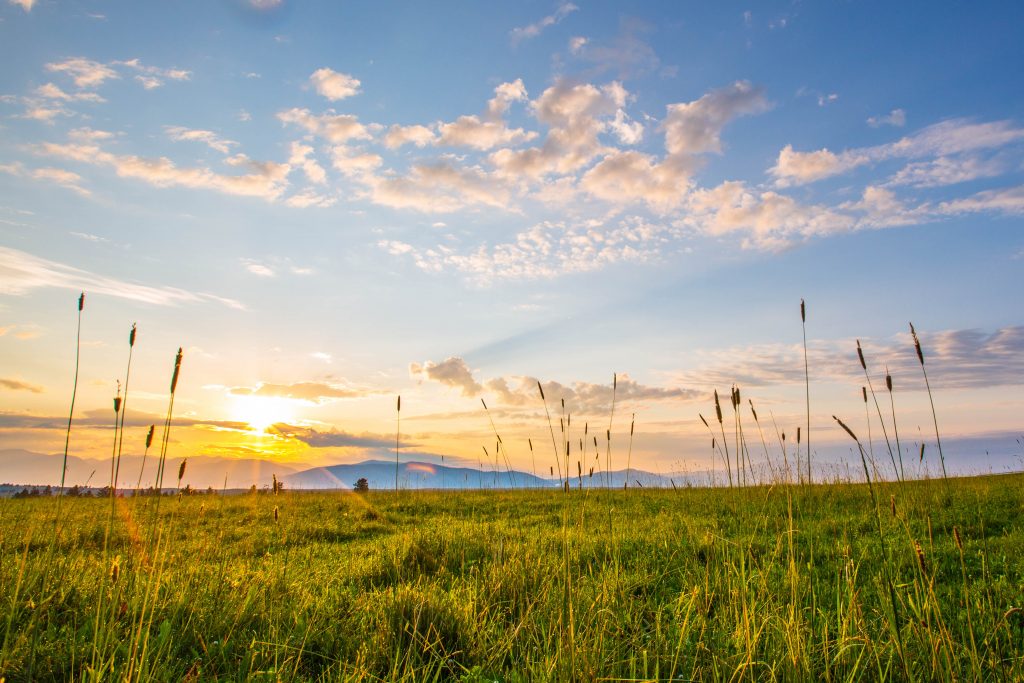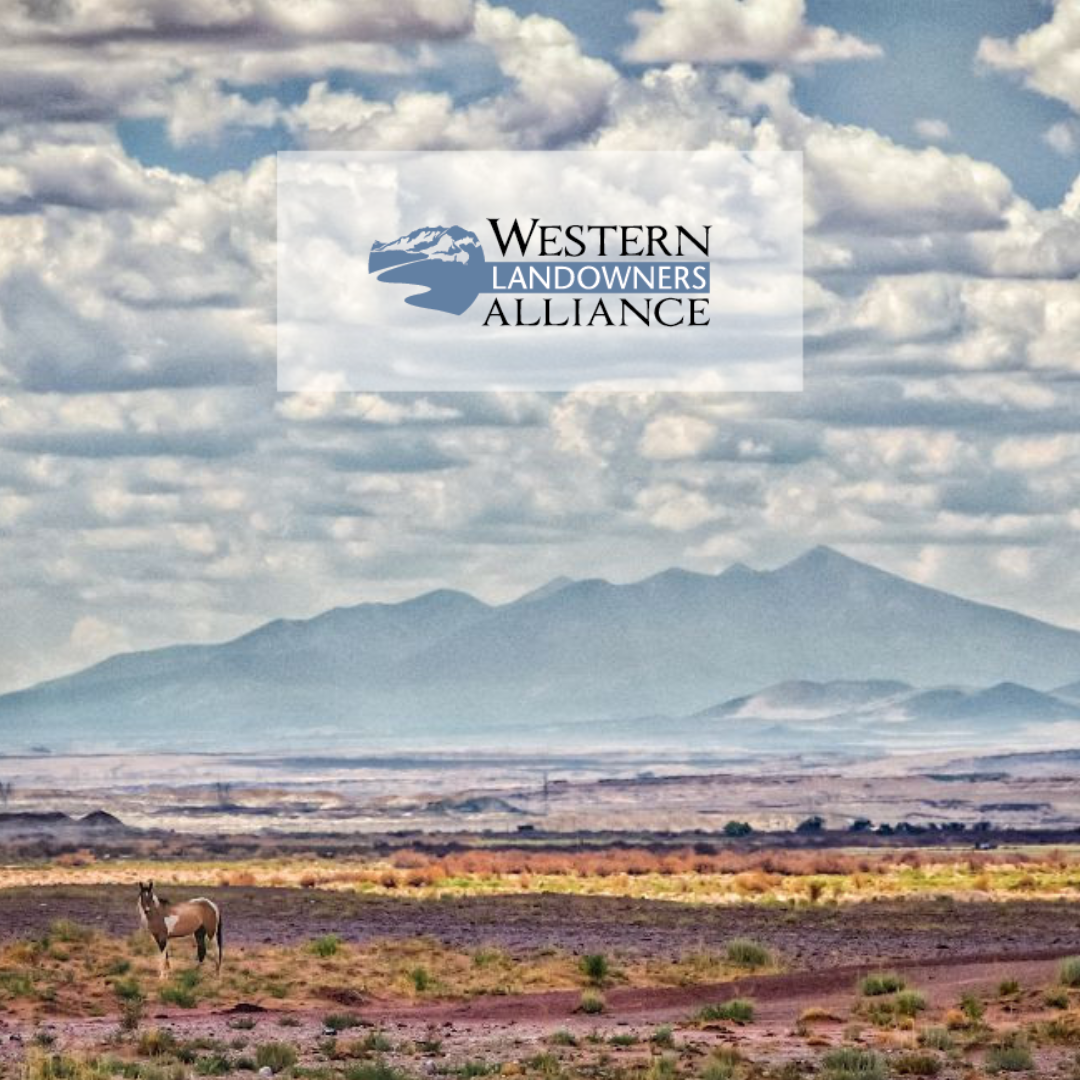Western Digest – September 2018
News and opportunities on working lands, water and wildlife

Photo: Erika Peterman
Days are getting shorter. Aspens are turning gold, orange and red. The end of summer is in the air. Articles in this issue range from a study showing how conservation boosts profitability to “Beef and Birds”, and how bighorn sheep learn migration, a new policy that would give states more control over wildlife, and the science behind grass-shrub competition. Enjoy!
As always, this member monthly includes pertinent working lands, water and wildlife news and opportunities from around the West. If you have any information, resources or events that you think would be valuable for this digest, or have questions or comments, please send me an email. I’d love to hear from you.
Hallie Mahowald
Stewardship Services Director
Working Lands Economics
- Conservation Boosts Profitability: A study from Environmental Defense Fund and K·Coe Isom AgKnowledge finds that conservation can boost farm profitability. Overall, the study found that conservation practices delivered positive returns on investment for farmers’ operations and created value far beyond the farm field: Environmental Defense Fund.
- Drought and Hay Prices: Hay yields are down, prices are up and cattle producers in dry areas of the country are being hit hard: Missouri Ruralist.
- 2017 Tax Bill Changes: The 2017 tax bill cuts taxes, and farmers and ranchers should know the details and how they are affected: Western Farmer-Stockman.
Forest & Range
- Winecup-Gamble Ranch: James Rogers, WLA member and manager of Nevada’s Winecup-Gamble Ranch, works with 25 employee families to balance conservation on nearly one million acres of working sagebrush country ranchlands. Winecup is one of 11 western ranches recently selected for the BLM’s Outcome Based Grazing pilot project, which pairs state and federal natural resource agencies with ranchers to determine if more flexibility can be built into future public lands grazing permits: USFWS.
- Beef and Birds: Can conservation and beef production find common ground? The Collaborative Adaptive Rangeland Management experiment began in 2012.Stakeholders include ranchers, representatives from conservation groups, researchers, and state and federal land managers who cooperatively manage for shared economic and ecological objectives across parts of Wyoming, Nebraska and Colorado: Beef & Birds.
- Grass-Shrub Competition: Grass-Shrub Competition in Arid Lands: An Overlooked Driver in Grassland-Shrubland State Transition? is a recently published report looking at whether shrubs have a positive, neutral or negative effect on grasses and if these interactions play a role in grassland-shrubland state transition: ResearchGate.
- Soil Conservation Boost: Noble Research Institute is developing protocols that seek to boost cropland productivity using carbon sequestration efforts designed to boost water retention and quality: NewsOK.
- Grassland to Cropland Conversion: According to the Plowprint Report, 1.7 million acres of grassland was converted to cropland in 2017. This number is down from 2016. Yet while overall conversion has decreased, the region of South Dakota that was once hit hardest by the Dust Bowl has experienced a dramatic increase in plow-up over the past year: World Wildlife Fund.
Water
- WY Water Law: While lawmakers and water developers consider multiple high-priced water development projects and a sweeping water-law rewrite, public and private rights holders are quietly and legally transferring billions of gallons of state-owned water to industry in exchange for cash: Wyofile.
- CO Utility Water Deal: Colorado Springs Utilities recently signed a water-sharing pact that it says will benefit farms in the Lower Arkansas River Basin while increasing city water supply. Critics are skeptical, pointing to the developer, who has made similar pledges before which resulted in dry farmland: The Gazette.
- UT Drought: According to the National Integrated Drought Information System, 100 percent of the population in Utah is currently being affected by abnormal dryness or drought, compared with only about one-third of the state’s population at this time last year: The Leader.
Wildlife
- Bighorn Sheep Learn Migration: Bighorn sheep migrate on long journeys, following a wave of green as plants come to life. Instinct doesn’t teach this, but culture does: National Geographic. Also, check out this video on the same topic: Science.
- Grizzly Hunt Blocked: A federal judge temporarily blocked the opening of the first grizzly bear hunt in decades. Idaho and Wyoming had planned to allow hunting of the Yellowstone-region bears after USFWS lifted ESA protections last year: The Washington Post.
- Re-establishing Bighorn in NM: New Mexico wildlife managers are considering a proposal to re-establish desert bighorn sheep in a mountain range in southern New Mexico where the species has been absent for nearly a century: AP News.
- CO River Cutthroat: The Colorado River Cutthroat, a unique type of trout thought to be extinct, has been rescued from southwestern Colorado streams where ash from a wildfire threatened their survival: AP News.
Policy
- State Control of Wildlife: Individual states will wield more clout over fish and wildlife on about 780,000 square miles of Interior Department land nationwide under a new policy outlined by Interior Secretary Ryan Zinke: The New York Times.
- New USDA Report: USDA and the Forest Service released a new report Toward Shared Stewardship Across Landscapes: An Outcome-Based Investment Strategy: USDA.
- Hubbard as USDA Under Secretary: James E. Hubbard will now serve as Under Secretary of Agriculture for Natural Resources and Environment at the U.S. Department of Agriculture: American Agriculturist.
- “Minibus” Spending Package: The House passed a $147 billion “minibus” spending package and sent it to President Trump for a signature, taking initial steps to avert another possible government shutdown: The Hill.
Tools & Resources
- Accessing Information for Rangeland Permits and Management: Many WLA members and landowners throughout the West have grazing leases on Federal lands. There is a great deal of available information regarding these leases and management of your leases—but it isn’t necessarily easy to find. WLA’s Jesse Juen provides an overview of pertinent information available on BLM and USFS websites: Western Landowners Alliance.
- New Ag Technology: The rise of low-power sensors combined with a long-range transmission network means farmers and ranchers can track much more than in the past — in real time: Western Farmer-Stockman.
- Need Hay? Colorado recently released the 2018 Colorado Hay Directory with a wide range of sources from around the state: Colorado Department of Agriculture.
Opportunities
Funding
- USDA Trade Mitigation Package: Sign-ups began on September 4 for the trade mitigation package aimed at assisting farmers impacted negatively by trade retaliation. There are three programs being offered: 1) Market Facilitation Program, 2) Food Purchase and Distribution Program, and 3) Agricultural Trade Promotion Program: American Agriculturist.
- Hurricane and Wildfire Assistance: Agricultural producers affected by hurricanes and wildfires in 2017 now may apply for assistance to help recover and rebuild their farming operations. Signup begins July 16, 2018, and continues through November 16, 2018: USDA.
Employment
- Ranch Apprenticeship: TomKat Ranch is posting a one-year Apprenticeship position for someone interested in gaining experience in regenerative agriculture and working with livestock and science to improve the productivity and resilience of the land. Learn more here.
Events & Webinars
- September 24: Regenerative Ranching and Farming Workshop with Ray Archuleta, Gabe Brown and Alejandro Carillo in Raton, New Mexico. More information here or call or text Kim Barmann at 505-217-6657.
- September 24-26: WLA’s “Land & Livelihoods” Conference in Billings, Montana.
- September 24-26: Women in Agribusiness Summit in Denver, Colorado.
- September 25: WEBINAR at 10 AM MT: “Rangeland Analysis Platform: Introducing a free, online tool to help manage and monitor western rangelands” presented by the USDA.
- October 2: Music Meadows Land Health Workshop with focus on erosion control and regenerative agriculture in Westcliff, Colorado.
- October 3: Monarch and Native Pollinator Habitat Management and Technical Training hosted by Pollinator Partnership in Albion, Indiana.
- October 2-4: Private Lands Partners Day hosted by Partners for Conservation in Springfield, Missouri.
- October 4: Brush management workshop from Altar Valley Conservation Alliance near Tucson, Arizona focused on practical applications of bush management techniques and synthesis of materials discussed in previous workshops. (It is not necessary to have attended the first two workshops.) To see information from the previous two workshops (e.g. presentations, handouts, live video recordings), visit the Global Rangelands site. More information and register here.
- October 5-7: Young Ag Leadership Conference in Billings Montana.
- October 7-9: Best Horse Practices Summit in Durango, Colorado featuring Dr. Temple Grandin, Dr. Gerd Heuschmann and more.
- October 9-11: Sustaining Colorado Watersheds Conference in Avon, Colorado.
- October 16-17: Restoring the West Conference “Multiple use and sustained yield of resources on public lands: Is it still possible?” at Utah State University in Logan, Utah.
- October 18: Horse Program Success on Working Ranches hosted by the King Ranch Institute for Ranch Management in Kingsville, Texas.
- October 19-20: Noon Ranch Arroyo Restoration Workshop hosted by Altar Valley Conservation Alliance near Tucson, Arizona.
- October 30 – November 2: 2018 Regenerate Conference hosted by Quivira Coalition, Holistic Management International, and American Grassfed Association in Albuquerque, New Mexico.
- November 28: Altar Valley Conservation Alliance Annual Winter Fire Meeting in Tucson, Arizona.
- December 2-5: 7th National Grazing Lands Conference in Reno, Nevada. Agenda and registration information are now available.
- December 10-14: 15th International Wildland Fire Safety Summit and 5th Human Dimensions of Wildland Fire Conference in Asheville, North Carolina.
- January 28-30, 2019: Rural Voices for Conservation Coalition (RVCC) Annual Meeting in Santa Fe, New Mexico including a shared day with WLA focused on collaboration to increase the health and resilience of public and private lands and rural communities.
- April 29 – May 3, 2019: 6th International Fire Behavior and Fuels Conference in Albuquerque, New Mexico. The conference theme is “Fuels of Today–Fire Behavior of Tomorrow,” and will be held simultaneously in Albuquerque, Sydney (Australia) and Marseille (France).
Membership
The Western Landowners Alliance advances policies and practices that sustain working lands, connected landscapes and native species.
Not yet a member? We invite you to Join Us.
Join WLA to stay up to date on the most important news and policy for land stewards.
Become a member for free today and we will send you the news and policy developments critical to the economic and ecological health of working lands.
WLA works on behalf of landowners and practitioners throughout the West. We will never share your contact information with anyone.
©2026 Western Landowners Alliance • PO BOX 27798, Denver, CO 80227 • 505.466.1495
Western Landowners Alliance is a 501 (c)(3) non-profit recognized by the IRS.
Tax ID: 46-1346488

